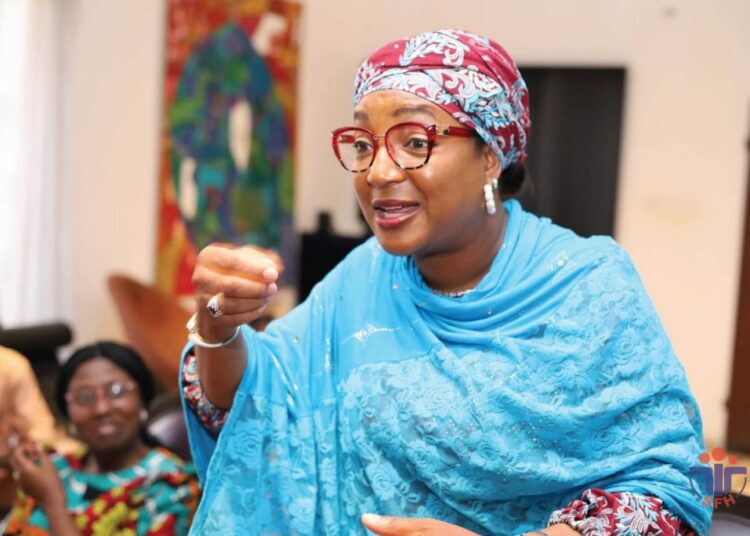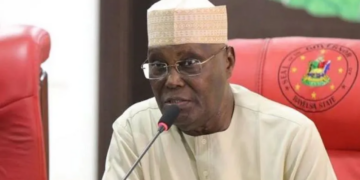Chairperson of the Nigerian Governors’ Spouses Forum and first lady of Kwara State, Prof Olufolake Abdulrazaq, has raised alarm over the number of girls among out-of-school children in Nigeria.
She spoke yesterday at the Nigeria Governors’ Forum conference on Girl-child Education in Nigeria, held at the Presidential Villa, Abuja.
“It may interest you to know that more than 60 percent of the out-of-school children in Nigeria are girls,” she stated.
She highlighted the urgent need for action to address this gender disparity in education.
The Kwara first lady emphasised that this situation demands immediate attention and targeted strategies.
She expressed hope that the conference would yield “clear, targeted, and state-specific strategies that will further ensure that we reduce the rate of out-of-school children and enhance retention, transition, and completion.”
Mrs. Abdulrazaq pointed out several factors contributing to this statistics.
One key issue she highlighted was the lack of basic necessities.
“You don’t know what it is when a child has sandals. You know, some children will stay away from school because they don’t have sandals or bags, because they’re laughed at in school,” she said.
She drew attention to an often overlooked factor keeping girls out of school: “Another thing I’m going to mention here is what we do when we talk about female hygiene products as well.
“And in your respective states, it’s important to look at this, because this constitutes a major reason why girls stay out of school as well, the lack of female hygiene products.”
To combat these issues, she shared initiatives from Kwara State, where her office “provides incentives like sandals, school bags, and other schooling materials to endear children, particularly girls, to enrolling and staying in school.”
She stressed the importance of education as a fundamental right, stating, “The right of Nigeria’s girl child to education, you will agree with me, is a matter of obligation and moral imperative,” adding that this imperative “strives to explicitly challenge bias and discrimination in the society, and seeks to identify critical gender disparities, and address the underlying factors that contribute to those disparities that mitigate against the right of the girl child to qualitative education.”











